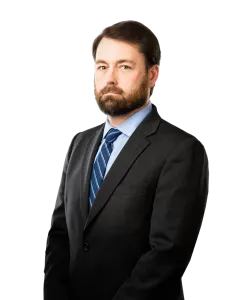Landlords Lose: New York Federal Court Upholds Landlord/Tenant Laws Due to COVID-19
On November 25, 2020, a New York federal court ruled in Melendez v. The City of New York, No. 20-CV-5301 (S.D.N.Y.) denying an injunction and declaring constitutional NYC Council’s newly enacted anti-harassment and guaranty laws that protect commercial and residential tenants.
Melendez v. The City of New York, No. 20-CV-5301 (S.D.N.Y.)
Why The Landlords Sued
In the wake of the COVID-19 pandemic, Governor Cuomo issued this past Spring a series of Executive Orders in order to address public health and economic concerns caused by the disease. On May 28, 2020, the New York City Council then enacted laws (the Anti-Harassment and Guaranty law) designed to protect residential and commercial tenants from owners’ proceedings for unpaid rent.
The Melendez plaintiffs, who are small property owners and landlords affected by the pandemic, sued the City seeking an injunction and declaration that the New York City Council’s Anti-harassment laws and Guaranty laws violate the First Amendment insofar as they prohibit otherwise lawful commercial speech (i.e., the demand for payment of rent and back rent), do not directly advance a government interest and are not narrowly tailored to meet that interest. They claimed that the laws harm small business property owners by preventing them from making otherwise lawful requests for rent and the laws are overly broad. The plaintiffs also challenged the Guaranty Law contending that it violates the Contracts Clause of the US and State Constitutions which generally restrict the passage of any law impairing the obligations of contract (here, leases) by prohibiting “good guy” guarantees for unpaid rent owed by the tenant for the period March 7, 2020 to September 20, 2020 (since extended to March 31, 2021). These laws bar these small property owners forever from collecting unpaid rent, utilities, fees, building maintenance charges, or taxes owed by the tenant for defaults occurring within the same period by defining collection efforts as “harassment.” Finally, the plaintiffs alleged that the laws directly conflict with the grant by the State Legislature of conferring exclusive jurisdiction upon the Governor to shape the contours by Executive Orders on a state-wide basis in order to address the effects of the pandemic.
The Court Ruling
Laudatory of the Governor’s Executive Orders, SDNY Judge Ronnie Abrams also found that the City Council’s laws do not violate the landlords’ right to free speech: “[W]hile a landlord may not harass someone because she has been impacted by COVID-19, the landlord may demand rent because the rent is due.” The Court distinguished cases where the tenant is protected because she or he is a front-line worker or caretaker of a person with COVID-19 and therefore is a person “impacted by COVID-19”, from a less clear case, where a tenant is impacted exclusively for economic reasons. Nonetheless, neither situation impacted the law’s constitutionality – or for that matter its vagueness. Judge Abrams also held that the Guaranty Law did not violate the Contracts Clause of the US Constitution and dismissed the claim under New York’s Constitution Art. 10 on supplemental jurisdiction grounds. The Court found that the law does not prevent the State from exercising such powers as are vested in it for the promotion of the common weal, or are necessary for the general good of the public, even though private contracts may be affected. The Court recognized that the law affords “substantial deference” to those policymakers making good-faith efforts to act in the public interest, and was reasonable and necessary to advance the public interest.
Finally, the Court ruled that commercial landlords have other means through which they can recoup the rental income that they have lost i.e., from tenants directly, charging late fees, terminating the lease, or eviction.
Melendez is the latest in a series of cases throughout the country that have rejected landlords’ constitutional challenges to new laws ordering them to bear the brunt of COVID-19’s economic cost. See, e.g., Elmsford Apartment Assocs., LLC v. Cuomo, No. 20-CV-4062 (S.D.N.Y. June 29, 2020); Auracle Homes, LLC v. Lamont, No. 3:20-CV-00829 (VAB) (D. Conn. Aug. 7, 2020); HAPCO v. City of Philadelphia, No. CV 20-3300 (E.D. Pa. Aug. 28, 2020); Willowbrook Apartment Assocs., LLC v. Mayor & City Council of Baltimore, No. CV SAG-20-1818, (D. Md. Jul. 6, 2020); Baptiste v. Kennealy, No. 1:20-CV-11335 (D. Mass. Sep. 25, 2020); Brown v. Azar, No. 1:20-CV-03702-JPB (N.D. Ga. Oct. 29, 2020); Apartment Ass’n of Los Angeles Cty., Inc. v. Los Angeles, No. CV2005193DDPJEMX (C.D. Cal. Nov. 13, 2020).
The Takeaways
The federal court ruling as to First Amendment was not entirely unexpected. The extraordinary duration and impact of the COVID-19 pandemic on New Yorkers persuaded the Court to give substantial deference to the discretion of lawmakers who were ostensibly aiming to protect commercial and residential tenants over the economic interests of landlords. The ruling as to Guaranty Law, however, largely ignores the reality that so many NYC commercial tenants have gone out of business, have declared bankruptcy, or reneged on paying rent. The immediate impact of the decision is that commercial landlords have only the “good guy” guarantee as a means to pay real estate taxes and the like owed the authorities and are without a real remedy for permanent losses. The Melendez decision also may impact legal certainty with respect to “good guy” guarantees in commercial leasing. It will be interesting to see how the Second Circuit on appeal addresses the question of rational relationship, if any, between the new law and the remedy it constrains, here, the permanent loss of a, bargained for contractual right, and thereby substantially shifting the burden (and the cost) of a failed commercial business to the property owner. Stay tuned.
Contacts
- Related Practices

